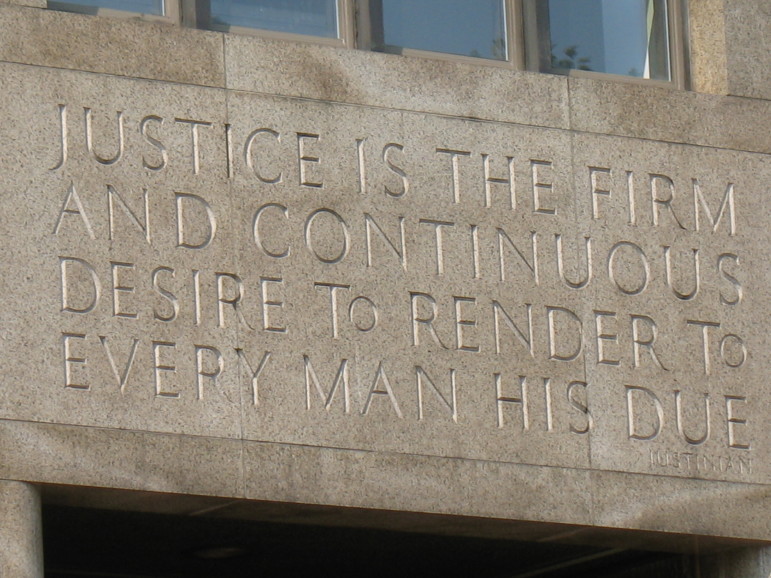In October, a Queens jury found Edwin Smith, a homeless cocaine addict, guilty of murder in
the death of a New York City firefighter. The prosecution argued that Smith, who had been
squatting in an abandoned apartment building, was responsible for the firefighter’s death because
his makeshift heater had sparked the blaze. For this, Smith was sentenced last month to a
minimum of 17 years to life in prison, without parole.
At first glance, the sentence may seem just. Smith confessed to starting the blaze. He had prior
convictions for drug possession and was violating his parole. And he contributed to the death of
a firefighter in a city that rightly holds its firefighters in high esteem.
There is something deeply wrong with the Smith verdict, however. Something so wrong, in fact,
that in sending Smith to prison for a minimum of 17 years, Judge Robert Hanophy may well
have extended the tragedy he was charged with redressing.
Both the judge and jury acknowledged that Smith started the fire by accident. Yet he was
convicted of arson and felony murder. If this conviction and sentence are allowed to stand, our
justice system will be pushing a standard by which desperate, poor and homeless New Yorkers
devising makeshift means to heat their living spaces, are risking prosecution for murder.
The turn of events that landed Smith behind bars began on New Year’s Eve one year ago. In the
basement of an abandoned Queens apartment building, he fashioned a heater using an empty
fuse box, animal fat and a paper wick. After Smith and his girlfriend fell asleep, the heater ignited
a blanket hung from the basement wall. The fire quickly spread to the ceiling, at which point
Smith and his girlfriend awoke and fled.
One of the first firefighters on the scene, Lieutenant John Clancy, entered the building through
the front door, unaware that the only occupants-Smith, his girlfriend and a third homeless
man-had already escaped. By this point, the fire had so weakened the supports in the basement
that Clancy fell through the floor into the blaze. These are the facts as they were presented to the
jury during Smith’s trial.
Within a week, Smith was arrested and the case fell to Assistant District Attorney Anselmo
Alegria. Alegria could have charged Smith with the lesser crimes of criminal trespass or reckless
endangerment. But he was not in a lenient mood.
Recall that during 1995, there was tremendous pressure on the fire department and Mayor
Rudolph Giuliani to put a stop to a recent string of firefighter deaths. Clancy’s was the ninth death
in a two-year period and the first of three the fire department would endure in the first six weeks
of this year. By February, when Smith was arraigned, there was a tangible sense that the fire
department had been beset by something not unlike a curse.
Photos of three dead firefighters, three grieving families and long funeral procession lines were
broadcast to the city. Add to that the frustration of city officials who, in the face of repeated
tragedy, had no ready answers as to why these firefighters were dying.
Then there was Mayor Giuliani’s personal involvement in the case. At the time of Smith’s arrest,
Giuliani was pushing hard for reform of the parole system, arguing that dangerous criminals
were too often prematurely released from prison. After City Hall learned Smith was on parole,
Giuliani held Smith up as a primary example of why abolishing parole would save lives.
With all of that, it’s possible Alegria may have been pressured to seek a murder charge against a
homeless man for a death that, by every indication, was a tragic accident. Equally troubling is the
legal precedent that this case may set.
Certainly some would think it is a gain. Richard Brower, president of the Uniformed Fire
Officers Association, a local union for New York City firefighters, maintains that any action to
save the lives of firefighters is worthwhile. “If it is a precedent, it’s a good precedent,” he says.
Yet this rush to judgment could doom any one of us-anyone who has ever lit a candle, a stovetop
or a lantern to warm a cold apartment-in a city where many landlords frequently fail to provide
heat. “If a mother uses the burners on a stovetop to heat her apartment and she starts a fire, her
actions can be defined as reckless,” says Robert Shapiro, a New York City criminal defense
attorney and an expert in criminal law. If her child is killed in that fire, her actions could be
deemed murder.
This is not a plea to excuse Smith of all culpability. After all, a firefighter with a sterling record, a
wife and a child died while fighting a blaze that Edwin Smith, albeit accidentally, started. Smith
is responsible. But in sending him to prison for 17 years, the court is crossing the line between
legitimate sentencing and cruel and unusual punishment.
Max Block is assistant producer of Radio Nation and an NYC-based freelance journalist.








